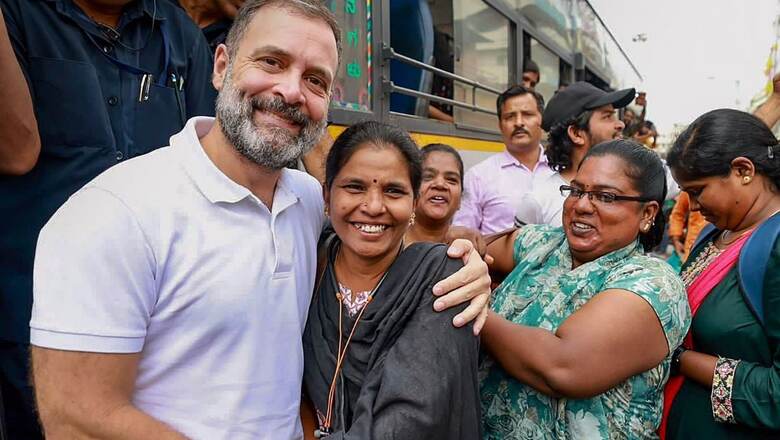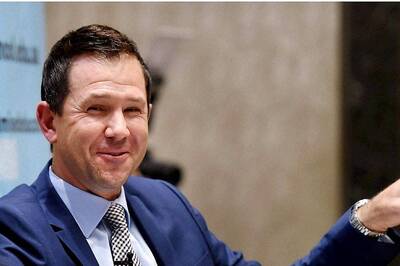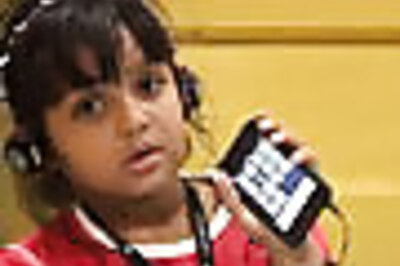
views
The Congress party’s belated espousal of caste politics was underlined by Rahul Gandhi’s provocative question while addressing a news conference in New Delhi this month, asking journalists present to raise their hands if they belonged to Dalit, tribal and other backward caste communities and not finding a single one. This palpable change from the earlier reluctance of India’s oldest political party to openly promote caste-based politics was almost flaunted by the Congress leader, clearly feeling vindicated having demonstrated the lack of representation in the media of the socially underprivileged. He promptly used his snap socio-demographic survey of the media to announce that Congress-led state governments would hold a caste census like the one held by Nitish Kumar’s government in Bihar that has raised a political storm on the eve of next year’s national elections.
Indeed, it is no small irony that Rahul Gandhi and the Congress have chosen to follow in the footsteps of Nitish Kumar, a long-time proponent of Mandal politics considering the former’s lineage and the party’s history. Thirty-three years ago, his father Rajiv Gandhi, as leader of the Opposition in the Lok Sabha, had bitterly criticised the then Prime Minister, Vishwanath Pratap Singh, for thrusting the Mandal Commission report recommending unprecedented reservations for other backward castes (OBCs) in government jobs that had sparked of riots across north India. His passionate appeal in the House not to let Singh’s “obstinacy lead to a caste war” in a speech that had severely castigated the Mandal Commission’s decision to let caste be the primary criterion to implement social justice has little resonance with the politics of Rahul Gandhi and the Congress today.
Rahul Gandhi’s new war cry “Jiski jitni sankhya bhari, uski utni bhagidari” (those with larger numbers should get maximum benefits) to justify the caste census and ascertain the actual demographic profile of castes across the country has significant implications in the run up to the next year’s Lok Sabha polls. Both the Gandhi dynasty and the Congress have for long shared the same antipathy with the two other national political formations, BJP (earlier Jana Sangh) and the Left to make caste as their main electoral calling card even as they quietly practised backroom constituency wise manoeuvrings according to caste. The Congress had invoked the pan-Indian spirit of the freedom struggle beyond caste, the BJP the unity of the Hindu nation and the Left class politics rejecting a formal adoption of the caste calculus on the plea that it would fracture society.
The current somersault by the Congress on caste-based politics comes after losing out heavily over the past decade by the success of the BJP, traditionally supported by upper castes, in wooing large chunks of the other backward caste vote ever since the advent of Narendra Modi who is himself a backward caste. According to data from National Election Studies (NES) conducted by Lokniti-CSDS, the BJP’s vote-share among OBCs more than doubled between 2009 and 2019 in national elections — it received approximately 20% OBC votes in the 2009 general elections, which increased to 44% in the 2019 elections.
These inroads by the BJP into the OBC vote came at the cost of both the Congress and state-level parties. The same survey by the Lokniti-CSDS showed the Congress vote among OBCs shrinking from over 40% in 2009 to barely 25% in 2019. Regional caste-based parties have not fared much better losing considerable ground to the BJP among OBCs.
Clearly, the Congress has decided that it needs to adopt a far more aggressive and confrontationist approach to caste politics to counter the BJP’s inroads deep into the OBC vote regardless of the party’s earlier stance. This also facilitates ideological coherence in the newly formed INDIA opposition alliance where the Congress is collaborating particularly in North India with several parties wedded to Mandal politics.
As a matter of fact, the Congress following Nitish Kumar’s caste census template in Bihar is logical considering the Bihar chief minister is considered to be the moving spirit behind the INDIA alliance and Rahul Gandhi’s announcement on the caste census may well have been taken after consultation with his senior colleague in the alliance.
However, it remains to be seen how adept Rahul Gandhi and the Congress will be at garnering votes from backward and lower castes on the basis of a caste census alone without a larger framework of reference. For instance, the BJP had the advantage of using the glue of Hindutva to cleverly attach its newly acquired OBC base with its traditional upper caste vote-bank. It is true that in the recent Karnataka assembly polls the Congress did manage to trounce the BJP by rallying the backwards and poor but this may be a far more daunting task to replicate in the face of the Modi juggernaut at a national level.
Rahul Gandhi’s previous political forays into caste politics have had dismal results. His much-publicised overnight stay in a Dalit village hut in his own constituency Amethi not long after he joined politics in 2008 palpably failed to get his party regain Dalit votes from a genuine Dalit party like the Bahujan Samaj Party led by Mayawati. Nor did his bizarre convoluted rhetoric a decade ago about Dalits requiring “the escape velocity of Jupiter in Earth” to improve their lot evoked little support and instead elicited mirth.
Having acquired over the past year considerable personal stature as a different kind of politician after his successful Bharat Jodo Yatra, the Congress leader needs to be careful not to fall into the trap of blindly copying the rhetoric on caste by regional leaders well versed in playing Mandal politics. Having rightly endorsed the need for a caste census which has visibly rattled the BJP ever since the wily Nitish Kumar made the move galvanising the pre-electoral scenario, Rahul Gandhi must move on to do his own thing which is to hit the road and talk to people about their day-to-day problems and not behave like a neta.
The writer is a Delhi-based political commentator. Views expressed in the above piece are personal and solely that of the author. They do not necessarily reflect News18’s views.




















Comments
0 comment